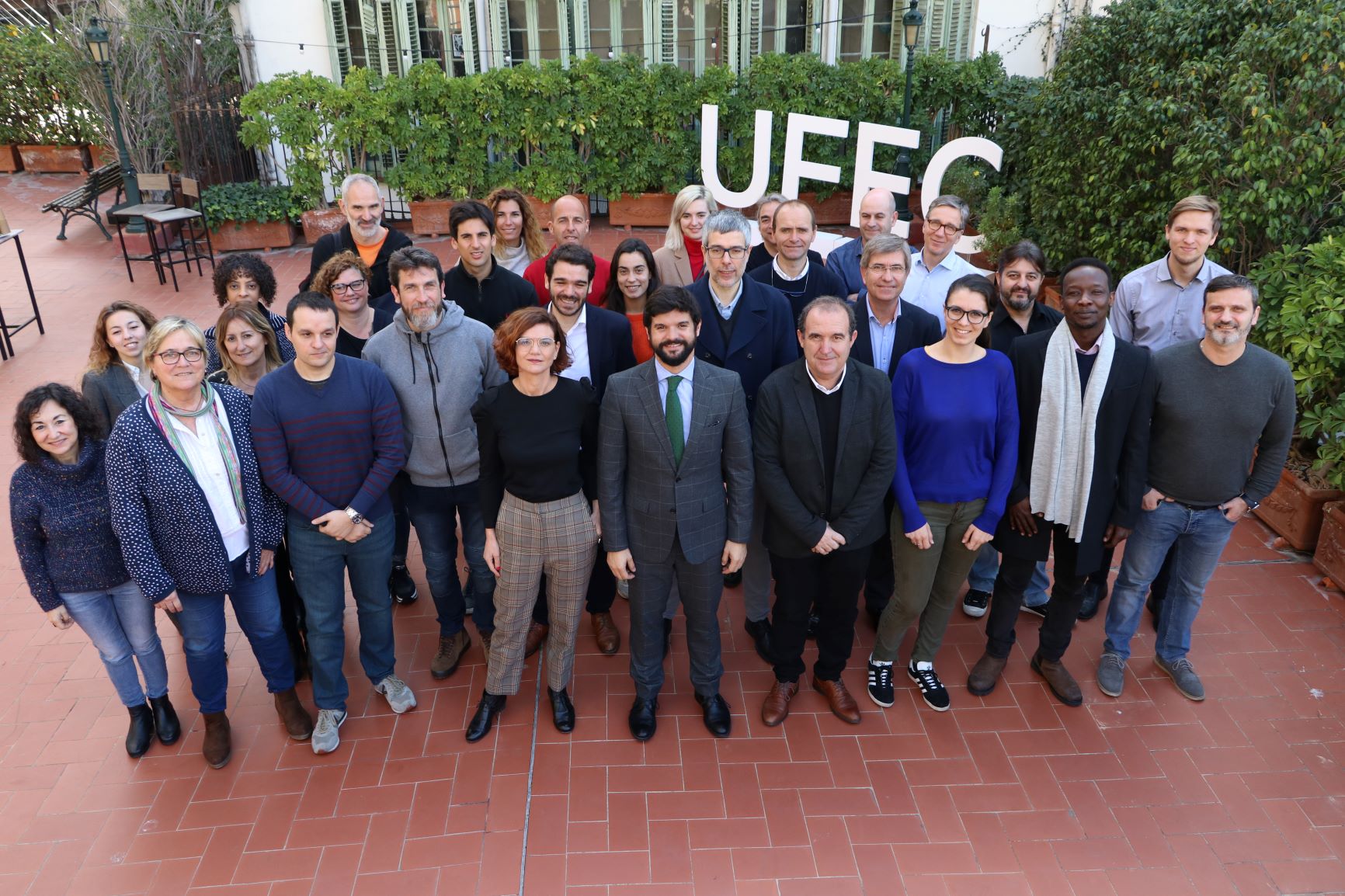
On Tuesday 17 February, the Union of Catalan Sports Federations (UFEC) headquarters hosted the kick-off meeting for the Sport for Prevention of Extremism in Youth (SPEY) project, the European venture led by the UFEC to prevent radicalisation in young people through sport.
The project is headed by the UFEC and funded by the European Commission. Its ultimate goal is to set up a sports programme which prevents radicalisation of young people at risk of social exclusion and promotes their integration. It also aims to produce a number of selection, identification and measurement tools to identify indicators of radicalisation risk.
Pilot programme featuring seven countries
Apart from the UFEC, the project has nine partners from seven countries: the Swedish Sports Confederation, the Union of Latvian Federations, the International Council of Sport and Physical Education (ICSSPE), Gondomar Town Council in Portugal, the Greek Ministry of Culture and Sport and the French Sport and Citizenship think tank. The University of Barcelona is the final partner and will evaluate all the stages of the project. SPEY is also backed by the Government of Catalonia, Sant Adrià del Besós and Terrassa town councils and the Catalan Hockey Federation.
The scheme is set to run for 30 months. Nicolas Espitaler, project manager for SPEY, stressed that sport “is an opportunity for Europe”. In his talk Espitaler set out the project’s operational framework and explained the work strands in the European Commission’s Erasmus Plus Sport programmes.
Adolescence, a critical point in radicalisation
Some of the countries engaged in the project have already experienced radicalisation and attacks, including France and Spain, and programmes such as SPEY are essential for these countries. “We need to make an effort to prepare young people to understand the complex problems of extremism and deliver tangible solutions,” said Xavier Torrens, Director of the Master’s degree in the prevention of radicalisation of young people at the University of Barcelona (UB), the only one of its kind in Spain. Working at the social and educational grassroots in countries is crucial and “sport is an essential tool for attracting young people in an age group – adolescence – which is a key factor in many radicalisation processes,” he commented.
Any kind of prevention entails combating ideologies which encourage violence and are based on prejudice. To address these prejudices, “sport can build resilience so that young people are not swayed by ideas which radicalise them”. Or in other words, sport can be used to “lessen the prejudices they find around them”.
Scientific basis of the project
Milena de Murga, SPEY’s coordinator and creator, underscored “the scientific basis of the project”. The UB will use the scientific method across all its stages to go beyond sport. “We aim to build a sports project featuring overarching skills, a mentoring programme and e-games,” explained de Murga. “But most of all we are looking for expert validation so we can put together a best practice handbook which corroborates what we do.”
SPEY is a pioneering project, a pilot scheme and an experimental programme which is unique in Europe. “If we do nothing, then the destructive ideas which break up society will become increasingly influential,” Torrens argued. De Murga added that the best practice handbook which will come out of the project will be “available to all so that other countries in Europe can also draw on it.”